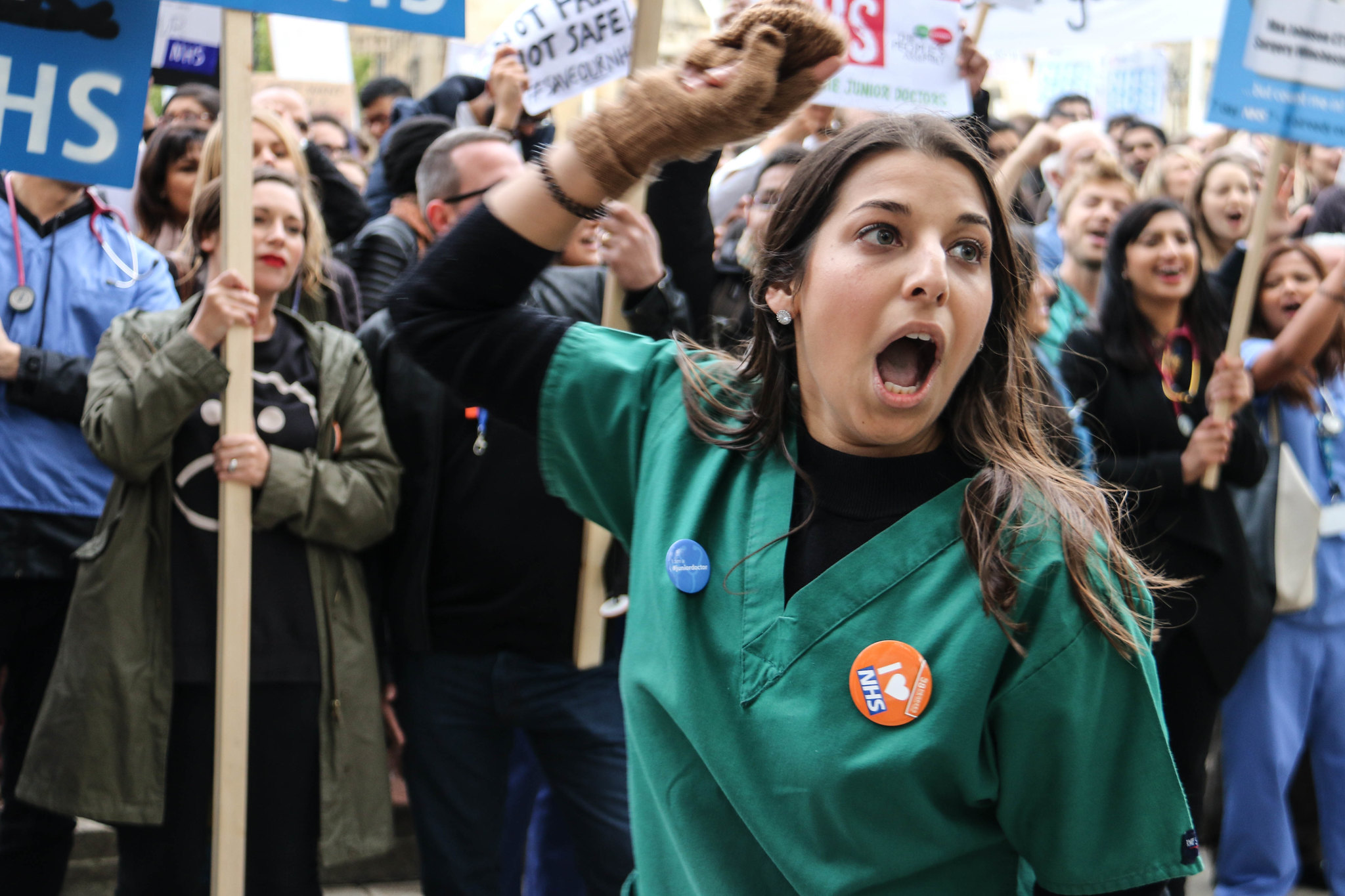Capitalism’s nervous breakdown
A conversation between Dessy Gavrilova and Albena Azmanova
Competitive labour markets, whether private or public, often set profit margins over employment rights. Job insecurity and new forms of exploitation are on the rise. As is the Far Right, cashing in on resultant worker anxieties. Is there a way out of this ‘precarity’, tormenting the overworked and underpaid?
The following interview took place at the Vienna Humanities Festival 2024 between Gavrilova, the festival’s co-founder, and Azmanova, the multiple award-winning author and ex-fellow from the Institute for Human Sciences (IWM).
Dessy Gavrilova: In your most recent book, Capitalism on Edge,1 you analyse the changing nature of work in the twenty-first century and the resulting shifts in power relations in our society. You propose a very original idea: a lens through which we can see the problem with global twenty-first-century capitalism. And what you’re saying is that, contrary to what most people believe, inequality is not where the problem lies – it’s ‘precarity’. So, I’d like to start this conversation by asking you to elaborate on your ideas.
Albena Azmanova: My take on contemporary capitalism was triggered by one question a group of left parties in the European Parliament asked me over 20 years ago in 2003. They asked me how it was possible that, despite the conditions of good employment and growth – this was well before the crisis of 2008 – the Left was losing the vote of the working people to the Far Right.
Maybe my growing up under communism and joining the dissident movement in my native Bulgaria in the 1980s helped me approach the issue of the troubles of the European Left from an unorthodox perspective. I came to the conclusion that although the Left was talking increasingly about growing inequality – and then, after the financial crisis of 2008, increasingly about the crisis of capitalism – we were overlooking the real issue that was troubling the great majority of working people: what I have come to call a ‘pandemic of precarity’. And let me immediately clarify that when I talk about precarity, I do not mean uncertainty and insecurity.
Now, there’s a lot of talk about uncertainty. UN Secretary-General António Guterres just gave a brilliant talk saying that the three evils that are making our situation unsustainable are inequality, impunity and uncertainty. But when we criticize the world for being uncertain, we risk idolizing, endorsing the value of certainty. And for people who grew up under a dictatorship like you and me, we remember how oppressive this imposed certainty was: we knew where we would be working, where we would be living, where we would go on vacation; we rebelled against that certainty. We wanted freedom, the power to decide our life.
My idea about generalized, ubiquitous precarity as a hallmark of our times is that it is a very special form of insecurity. And that is why I use the term ‘precarity’, which didn’t exist in dictionaries in the English language until recently – the normal word is ‘precariousness’. People who like me write about precarity use this newly minted word to indicate that there is something new going on. It’s an insecurity that is rooted in the increased precariousness of livelihoods and lives. But mostly I’m concerned with the economic roots of that new form of insecurity.
Here is what is special about precarity. We’re not only precarious when we have a poorly paid and insecure job, we’re also precarious when we are tasked with duties that we cannot perform because we don’t have the resources: time, skills, money. We experience precarity because we are not equipped to cope. And in that sense, young people who cannot enter the labour market, who cannot get their first job, are precarious. People who work on stable, well-paid jobs, but are pressured with so many responsibilities that they cannot take a holiday and their mental health suffers are also precarious.
Take the nurses and doctors in the British healthcare system. According to the statistics I saw last year, over 50% of them are considering quitting their jobs because they simply cannot cope. If you think you cannot cope, you do not have stable employment, because you are likely to lose it.
This is the tragedy with ubiquitous precarity. And the second feature that makes this a special type of insecurity is that it is politically generated. It is not just the general uncertainty and insecurity of modern life. No, these things are a result of specific politics, ideological attitudes and policies.
To put it shortly, our governments have made competitiveness in the global economy the top policy priority; they’re slashing budgets for public spending, making our employment insecure and pushing more and more responsibilities down onto citizens. So public authority is washing its hands of taking care of society, of its citizens, and is hand-picking specific economic players like big companies to enhance their global competitiveness. This is the big new idea of the European Commission, to build national or European champions. So, they’re alleviating the competitive pressures on the big economic actors, the strong ones. And then all the competitive pressures are pushed down onto society – we are all subjected to it: men, women, the young, the old, those with academic degrees or with basic education; I speak about the precarity of the 99%.

Protest against NHS regulations, UK, October 2015. Image by Rohin Francis, via Flickr.
Dessy Gavrilova: You mentioned that precarity is a new word, but how new is the phenomenon? Can you assign a birthdate to this phenomenon?
Albena Azmanova: Well, of course, modern societies are insecure, but I use this term to speak about those policies that deliberately created this situation. And I date them to somewhere towards the turn of the twenty-first century, when competitiveness in the global economy started to trump everything else. One example is the pandemic.
What does COVID-19 have to do with precarity? The public health emergency became an economic crisis because of specific political decisions. In 2017, I believe, the European Commission proposed the development of vaccines against a virus like COVID-19. People knew that such a danger existed. And the European Commission made a proposal to the big pharmaceutical companies within a public-private initiative called Innovative Medicine Initiative. What did these companies say to the proposal? ‘No thanks, it isn’t going to sell. This isn’t competitive in global markets.’ So, a very necessary policy was killed off.
Another element of precarity is the fear or anticipation of losing your social status. Western societies feel very precarious because we are all quite well-to-do. And we are rapidly experiencing this threat of social slippage. And for me, this explains a lot why the vote of the disillusioned and the threatened and the scared is going to the Right rather than the Left.
Dessy Gavrilova: In your book, you criticize the leftist criticism of capitalism for two reasons. You say it’s wrongly directed and it’s not radical enough. And you talk about the paradox of emancipation, where you’re saying that even in some of the most radical fights for justice and redistribution, the Left, or the critics of capitalism, are keeping capitalism in a sort of zombie state. They’re reaffirming it. And you quote the Indignados,2 who say, ‘We’re not against the system, but the system is against us’, which is sort of a plea for inclusion rather than for dismantling the system. So, my question is, what in your opinion – and following your logic – would be an adequate leftist agenda?
Albena Azmanova: The Left has been increasingly focused on inequality. Of course, awareness of inequality triggers our sense of injustice: the global 1% of the rich possess 43% of the global wealth. This doesn’t seem fair. But this implies we want to be equal within an otherwise unjust system. What does it mean to be included and equal within a system? That we actually value that system and all we need to do is fight for our place within it. In that sense, this isn’t a radical position.
So within that logic, we have arrived at groups of victims fighting each other, what I like to call the Victimhood Olympics – in conditions of precarity, to claim the status of a victim is the only way to obtain some social protection. Of course, you have to play that card, if it is the only trump you have. Otherwise, you are doomed. But on that plane, one group of victims is fighting another group of victims while the perpetrators remain invisible, enjoying the Olympics.
Dessy Gavrilova: What is an adequate leftist agenda?
Albena Azmanova: First of all, to accept this diagnosis of general precarity – rather than going along with the fashionable dogmas of the day that we have inherited. And then search for a solution that comes directly from this diagnosis. I will steal a phrase from one of my favourite East European authors Stanisław Lec, a Polish writer: he used to say that the exit is usually the same place where the entrance was.
So, if the entrance to this trouble is the policies that created precarity, let’s fight those policies, let’s fight the fact that considerations of profit have trumped all other considerations. We are running our universities for profit, not for knowledge. A lot of the bans on specific protests in universities are done under considerations that we need to attract international students and this doesn’t look good for profit-making.
More specifically, the Left has been too much like the Right, the Centre Left and the Centre Right pushing the populist promise for inclusive prosperity for all. We cannot continue producing and redistributing prosperity when we are serious about saving the environment. Ecological policies are costly, and people understand this. So, when you ask them to accept the price tag of green policy, you have to offer something to people in the place of prosperity. What I’m proposing is that we offer economic stability, security for sources of income and livelihood, so that people can see the future without anxiety. Because no matter how rich you make people, if their wealth is insecure, they will be haunted by all the anxieties that come from precarity.
Dessy Gavrilova: But how can capitalism be reformed? Yesterday we were listening to Kotkin3 saying that dismantling capitalism is not something that wins elections, because you have to actually vote for giving away your wealth, etc.
Albena Azmanova: I like to talk about subverting capitalism rather than overthrowing or reforming it – and we can do that by diminishing the role that the considerations of profits play in policy. Because the pressures of profitability are also hurting the ‘winners’ of capitalism. COVID-19 again is a big example. It was a global socioeconomic crisis because our policies prioritized profit – and that obviously wasn’t good for the rich either.
Now it’s important to drop all talk about the crisis of capitalism. The Left loves that, but it is playing into the hands of the Right because that narrative also implies that capitalism, as supposedly the engine of prosperity, is in need of being saved. And it also invites emergency policies that prevent us from looking ahead. It’s permanent crisis management. This becomes part of the problem we’re trying to solve.
We don’t need to wage a battle using slogans such as ‘overthrowing capitalism’ which either scares or confuses most people. I don’t think that’s going to work. But we could attack the extreme focus on profit that defines capitalism. Capitalism is not just a market economy. Capitalism is a social system motivated by the pursuit of profit, what Marx called ‘the profit motive’. Even without declaring a war on capitalism, if you fight the profit motive, you fight capitalism.
Dessy Gavrilova: But if capitalism doesn’t need to be saved, what would the alternative look like? You and I lived through an alternative, and we know how it ended in 1989. Is something like a basic unconditional income a way to a solution? What does post-capitalism look like, in your opinion?
Albena Azmanova: I’m personally averse to utopias or grand ideals, because I think they’re always getting us into trouble – we don’t need them to press for change. You and I lived in a society that justified a lot of bad things through this commitment to the grand idea of communism. And I would always go with Václav Havel, who believed that socialism and capitalism are just two forms of a very toxic form of modernity and they’re not true alternatives.
For me, it wouldn’t be necessary to have a blueprint but to focus on what is hurting people. And what is hurting us is this increased commitment to competitiveness in the global economy. The European Commission has completely made that its flagship policy now. So, let’s start the fight today against these specific things and then we’ll see where that leads us. I don’t think we need to know the end result.
Dessy Gavrilova: In your work, you’ve been looking into deliberative democracy a lot, including in your book The Scandal of Reason.4 But I was wondering what you think of this Habermasian idea that deliberation is the way to solve social conflict. In a situation where whole generations are raised on social media, where they stay with like-minded people in their opinion bubbles, and this place of confrontation with the other side and deliberation is becoming smaller and smaller, what’s left of this idea?
Albena Azmanova: The idea of direct democracy, forms of direct engagement, became fashionable 30 years ago. And they’re also very fashionable now because we see that the institutions of electoral politics are not giving good results. But I’m very sceptical about two things in deliberative democracy. I don’t believe that we can solve the crisis of democracy with more democracy, because when our political economy produces scared and hateful democrats, all channels of democratic representation translate that fear and anxiety into policy. This is exactly what’s happening with the rise of the Far Right. They’re coming to power through democratic free and fair elections.
However, there are forms of democratic engagement that could help to end the Victimhood Olympics. And I’ve seen that happen in deliberative forums produced in a particular way, for instance, through random sampling, so that we make sure that very poor and precarious people confront the frustrated businesspeople who are angry that their taxes are being wasted. When such people – supposedly ‘class enemies’ – step out of their silos and are made to talk to each other, there’s a chance that they direct their attention not against each other but against the common sources of frustration and suffering, and attribute responsibility to the public authorities that are not doing their job to create a fair economy for all.
This idea of the Habermasian ideal of deliberative democracy is very much based on the belief that when citizens treat each other as rational, equal and free individuals, they’re going to resolve their problems by talking. Well, no, we really need a true confrontation, where people can fight without restraint, confront each other and create this critical engagement with each other’s lives. I don’t have much patience with the wishful thinking that is so common in normative philosophy. It’s a good ideal, but it doesn’t help us advance much.
This interview has been edited for length and clarity. It took place on 29 September 2024 at the Vienna Humanities Festival 2024, which was organized by the Institute for Human Sciences (IWM) and Time To Talk (TTT) in cooperation with FALTER, the Open Society Foundations, the City of Vienna, ERSTE Foundation, the Academy of Fine Arts Vienna, the Wien Museum and the Volkstheater.
A. Azmanova, Capitalism on Edge, How Fighting Precarity Can Achieve Radical Change Without Crisis or Utopia, Columbia University Press, 2020. The book has been translated into German, French and Romanian, and an Italian translation is forthcoming.
The Spanish anti-austerity movement Los Indignados.
American historian Stephen Kotkin.
A. Azmanova, The Scandal of Reason. A Critical Theory of Political Judgment, Columbia University Press, 2012.
Published 24 January 2025
Original in English
First published by Eurozine
Contributed by Institute for Human Sciences (IWM) © Albena Azmanova / Dessy Gavrilova / Institute for Human Sciences (IWM)
PDF/PRINTNewsletter
Subscribe to know what’s worth thinking about.
Related Articles

Pilot schemes show that the four-day week can increase productivity while significantly improving personal wellbeing. So what is holding back this long mooted reform? Comparison shows that some models are more popular than others among employers and employees alike.

What happened to solidarity?
Fronesis 80–81 (2024)
Analyses of the decline of Scandinavian social democracy: how marketization has destroyed the Swedish model; on the rise of anti-elitist conservatism in Denmark; and dusting down the concept of the professional managerial class.





